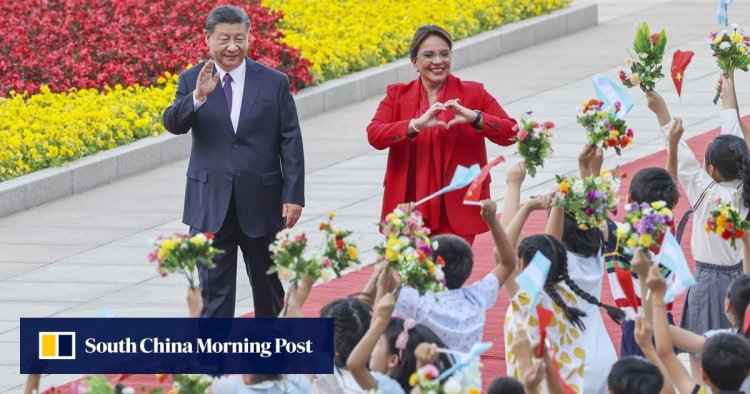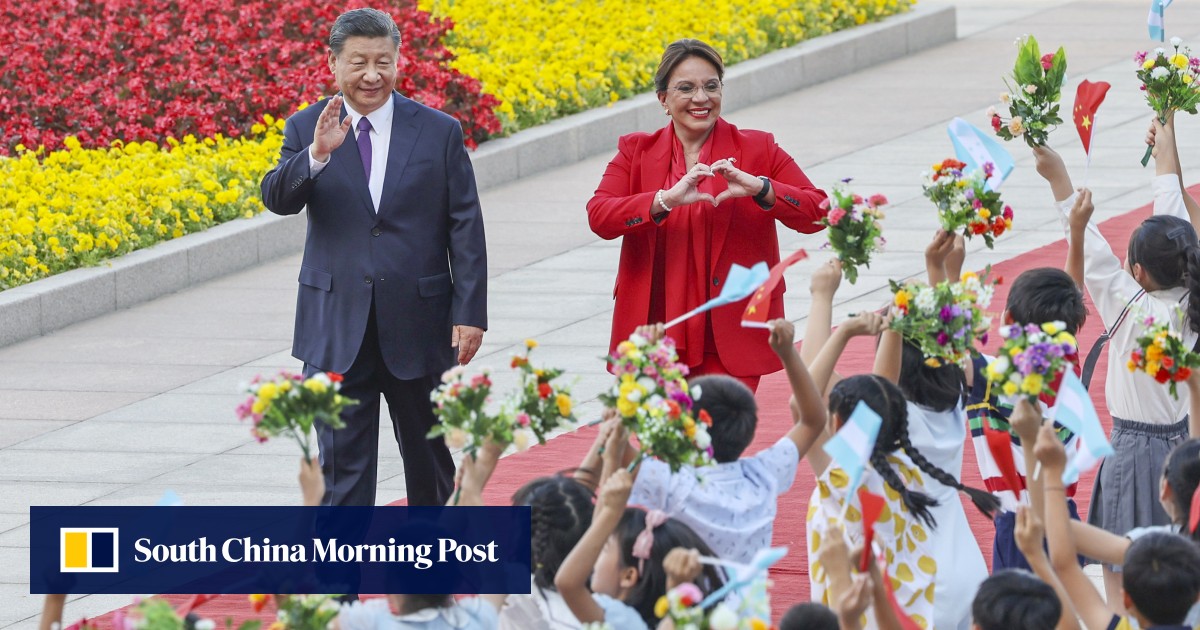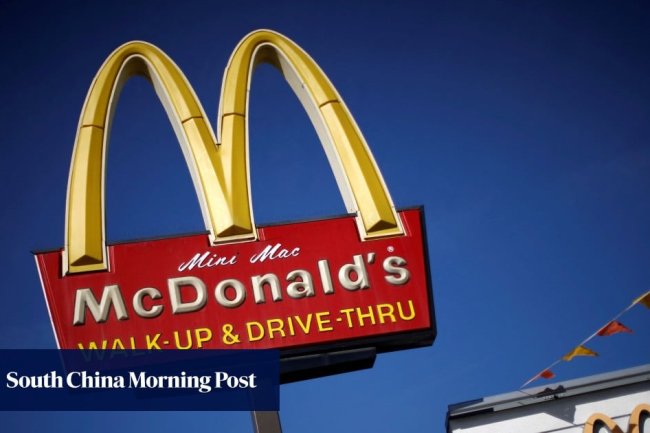Why Beijing’s trade deals tempt Taipei’s allies in Latin America – but not the Pacific
2023.06.18 20:00Beijing’s promises of free-trade deals and infrastructure cooperation are likely to be a bigger lure for Taipei’s remaining diplomatic allies in Latin America than those in the Pacific, according to analysts.The assessment follows Honduran President Xiomara Castro’s red carpet treatment in Beijing last week, her first trip to the mainland China since her country switched diplomatic ties from Taipei in March.During their meeting, Chinese President Xi Jinping praised the “historic decisiveness” and “strong political will” that Castro showed as she fulfilled an election promise to switch allegiances from Taipei to Beijing.The two sides signed 17 agreements in various areas, including Belt and Road Initiative construction, agriculture, science, and technology.They also indicated that formal talks towards a free-trade agreement would begin “as soon as possible”.Honduras is just the latest country to switch recognition in the long-standing diplomatic tussle between Taiwan and


Beijing’s promises of free-trade deals and infrastructure cooperation are likely to be a bigger lure for Taipei’s remaining diplomatic allies in Latin America than those in the Pacific, according to analysts.
The assessment follows Honduran President Xiomara Castro’s red carpet treatment in Beijing last week, her first trip to the mainland China since her country switched diplomatic ties from Taipei in March.
During their meeting, Chinese President Xi Jinping praised the “historic decisiveness” and “strong political will” that Castro showed as she fulfilled an election promise to switch allegiances from Taipei to Beijing.
The two sides signed 17 agreements in various areas, including Belt and Road Initiative construction, agriculture, science, and technology.
They also indicated that formal talks towards a free-trade agreement would begin “as soon as possible”.
Honduras is just the latest country to switch recognition in the long-standing diplomatic tussle between Taiwan and Beijing – which sees the self-ruled island as a part of its territory. Most countries, including the United States, do not recognise Taiwan as an independent state. Washington, however, opposes any attempt to take the island by force.
Beijing’s campaign to pull Taipei’s few remaining diplomatic allies from its orbit has only ramped up since 2016 following the election of Taiwanese President Tsai Ing-wen and her independence-leaning Democratic Progressive Party.
Since then, nine countries have abandoned Taipei, leaving it with just 13 formal allies.
With the exception of the Holy See and the African state of eSwatini, Taiwan’s remaining diplomatic allies are a handful of countries in Latin America and four Pacific island states.
Among them are the Latin American countries of Guatemala, Belize and Paraguay, which like Honduras, have export-oriented economies and stand to benefit the most from formal trade relations with China, according to Rasheed Griffith, founder and CEO of the Caribbean Progress Studies Institute.
Bananas and coffee beans are among the key exports of Belize and Guatemala, respectively, and just one day after Castro’s meeting with Xi, China announced it was approving the import of the commodities from Nicaragua.
China is also the world’s largest importer of soybeans, Paraguay’s key crop.
Griffiths said that even Caribbean states such as St Kitts and Nevis and Saint Lucia, which depend on tourism and services rather than exports, stood to gain from an inflow of cheaper Chinese goods.
“In my opinion the economic calculation will become too overwhelming,” Griffith said. “It is very unlikely that Taiwan will have any formal allies in the region in the next five years.”
But Beijing’s economic enticements might not be as effective in the Pacific.
“It’s standard procedure for the PRC government to signal to governments that flip their recognition from Taipei to Beijing that they will get rewarded with VIP treatment,” Denny Roy, a senior fellow at the East-West Centre in Hawaii, said, referring to the People’s Republic of China.
“But in some cases this isn’t enough.”
The Marshall Islands and Palau in particular have long been strong allies with the United States.
Both have signed onto the US’ Compact of Free Association, with Palau extending its membership last month. Inclusion comes with a number of benefits, including financial and development support, in exchange for US use of their land and waters for military and national security purposes.
“If staying on the good side of the USA is important, recognising Taipei rather than Beijing is an advantage,” Roy said.
Tuvalu has also been a staunch supporter of Taipei. Last year, the Pacific island’s prime minister, Kausea Natano, repeated his intention to “stand firm” with Taipei despite geopolitical pressure, due to their shared values of “democracy, truth, and human rights”.
Nauru, too, had indicated its willingness to maintain ties with Taipei owing to shared values, said Henry Ivarature, deputy director of strategic engagement at the Australia Pacific Security College.
“Sometimes, these countries want to show they can stand up to the superpowers, even if they are some of the smallest states in the world,” Ivarature said. “It will be very difficult for China to influence them to switch.”
Nonetheless, Taipei should stop trying to “vainly” compete with Beijing over small developing countries, and instead focus on developing its “unofficial relations” with countries like Japan and the US, said East-West Centre’s Roy.
Griffith agreed, saying lack of diplomatic recognition was not an “existential threat” to the island.
“Hopefully the diplomatic ally question will be quickly de-emphasised,” he said.
What's Your Reaction?













